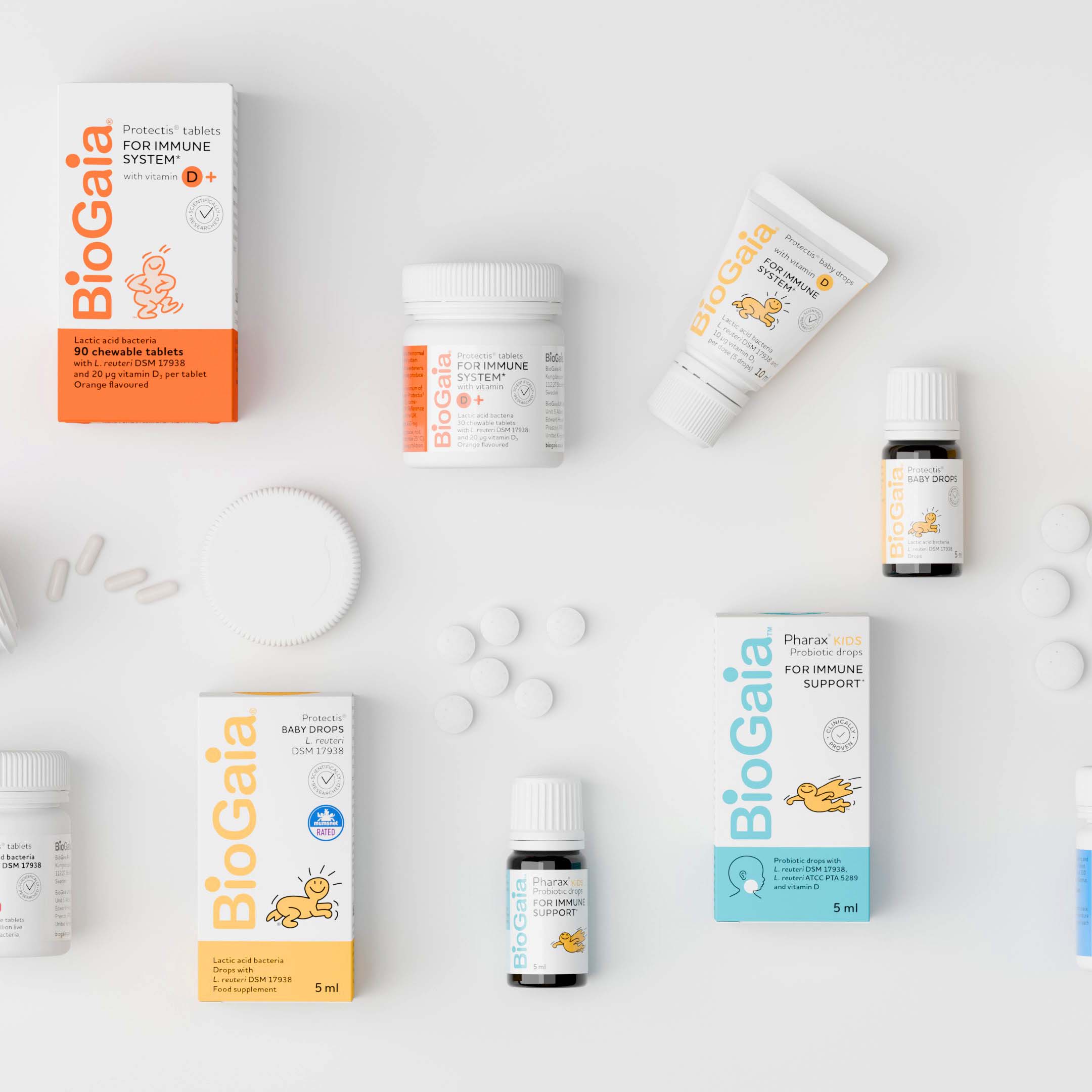The World Health Organization (WHO) defines probiotics as “live microorganisms that, when administered in adequate amounts, confer a health benefit on the host.”
What you need to know about beneficial bacteria
Not too long ago, the general thought was that all bacteria were bad. That’s because the first bacteria we were able to identify were the ones that made people sick. We now know that almost all bacteria are either completely harmless, or very beneficial to our health. Some of them are absolutely essential to our survival. Only a very small number of bacteria actually pose a pathogenic threat (meaning that they are potentially harmful) to humans. Bacteria are sometimes described as “good” or “bad”. Among the “good bacteria”, probiotics stand out as particularly beneficial to human health.
What is a probiotic strain?
Bacteria are classified into genus, species and strains. Each strain of bacteria has its own genetic composition resulting in different characteristics. A bacteria strain is a population of bacteria that descends from a single individual or pure culture. Bacteria of the same strain have certain characteristics that differentiate them from bacteria of other strains, just as, for example, a Great Dane has different characteristics from a Chihuahua, even though both are dog breeds.
Different probiotic strains have different attributes
Different probiotic products contain different probiotic strains. That’s why it’s not specific enough to talk about for example lactic acid bacteria. It’s important to clarify which strain is being referred to. The fact that a product contains “lactic acid bacteria” or “Limosilactobacillus reuteri” is not enough. Both the species and strain name, for example Limosilactobacillus reuteri DSM 17938, must be specified, in order to know which probiotic is being referred to.
This means that one probiotic product with Limosilactobacillus reuteri (for example L. reuteri NCIMB 30242) is not equal to another probiotic product that contains another strain of Limosilactobacillus reuteri (for example L. reuteri DSM 17938).
The importance of clinical trials
It is important that the specific probiotic strain that a product contains is specified on the package and that all properties associated with the strain have been proven in clinical studies. Products developed as a result of these studies must contain the exact same strain and the exact same dose tested in the clinical trials.
Besides the specific strain, what else is important when looking at probiotic supplements?
In addition to being able to identify the specific strain that the supplement contains, it is important that the strain has been tested in clinical studies to ensure that it is safe and that the amount is adequate.
A good probiotic also colonises the human gut temporarily - this is what allows a probiotic to help restore a healthy balance of good and bad bacteria in the gut. CFU, or “Colony-Forming Units” is an estimate of how many viable bacteria cells there are in a dose (such as a tablet).
Even a bacterium that has the ability to colonise the gut must be taken regularly to reach high enough levels to achieve proper colonisation. Such colonisation is often transient, which is why a daily intake of probiotics from food or probiotic supplements is good to ensure adequate and stable levels of probiotics in the GI tract.






